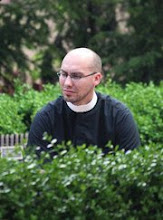On Heresy
For the topic of my first post, I ran across a statement that has present implications in the current debates within Nazarene theology. It seems that many have decided to bring "heresy" back into the theological vocabulary. It has become the task of some who are "concerned" about the direction of our church to discern who are faithful and who are heretics. They are quite open about labeling people as heretics. I've even made one of their lists. The problem is that their definition of heretic seems to be "one who disagrees with me."
In contrast to that definition, Newbigin, while talking about "Authority, Autonomy and Tradtion," says the following:
In a pre-Enlightenment society there are only a few heretics in the original sense of the word, that is to say, only a few people who make their own decisions about what to believe. For the vast majority faith is not a matter of personal decision: it is simiply the acceptance of what everybody accepts because it is obviously the case. There is no alternative and no personal choice. By contrast... in a post-Enlightenment society we are all required to be heretics, we are all required to make a personal choice. Everyone, as the saying goes, has to have a faith of his or her own. If, then, I appeal to the authority of the Bible or the Church, that is simply my personal choice. It does not settle any argument.
Of course one could point out... that the heretical imperative is not universal. There are elements in our culture where tradition is operative. No one, in our culture, suggests that each of us should have a physics of his own or a biology of her own. We know, of course, that there are arguments among physicists and biologists, just as there have always been arguments among biblical scholars and church theologians. But where there is consensus among physicists, as there is across the cast range of matter which is included, for example, in a school textbook of physics, we accept that as authoritative. In this field, the statement "All physicists are agreed that..." is normally enough to settle an argument. There is no significant proportion of our society which simply dismisses the findings of the physicists as merely private, subjective preferences. In the case of statements about Christian belief, however, the situation is obviously different. A very large section of society simply dismisses the statements of theologians as expressions of personal opinion -- opinion which they are entitled to hold but which does not rank as public truth, as factual knowledge in the sense that the statements of physicists do. (39-40)
Very interesting indeed.
Ready...
Set...
Discuss...


1 Comments:
Don't have much of a chance to respond right now, but it makes me think of when a bunch of pastors get together and joke about their "heretical" thinking. Of course these are usually pastors who know and care about each other.
Something to dwell over. :)
Post a Comment
<< Home